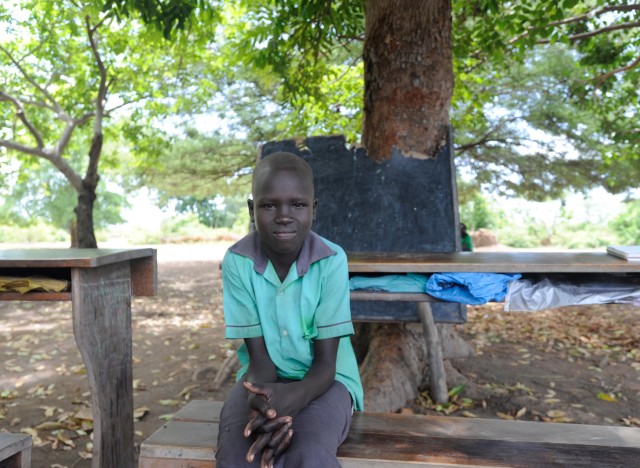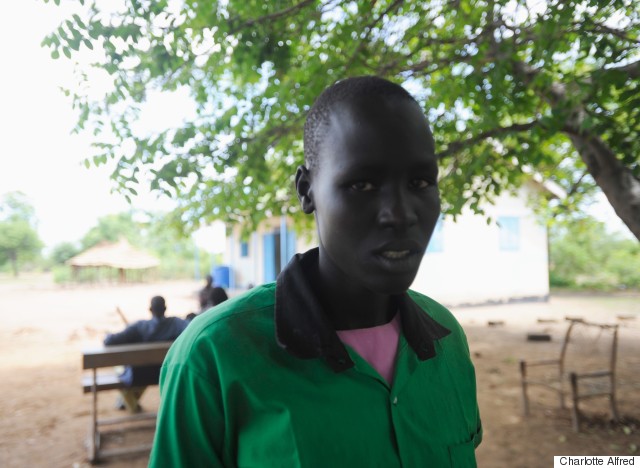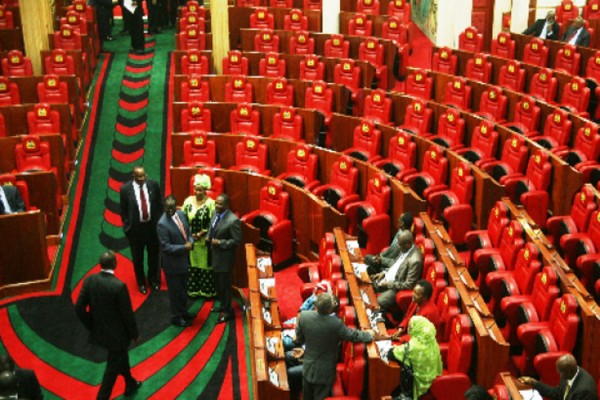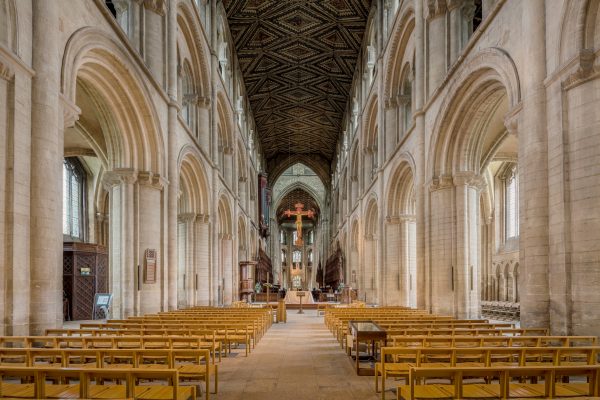KUAJOK, SOUTH SUDAN — The girls at Pariang primary school in South Sudan range in age from 5 to 25 years old. The older pupils study alongside the young, receiving their elementary school education on wooden benches clustered under the few trees that shade the schoolyard. They have fought against the odds to be here, many missing years of education due to the poverty, insecurity and gender discrimination that troubles this young nation.
When South Sudan won independence from Sudan in 2011, girls here were three times more likely to die during pregnancy or childbirth than to complete their primary school education. After decades of war with the government in Sudan, newly independent South Sudan was left with a barely functioning education system. In 2013, a clash between the country’s new leaders led to a brutal civil war that has frozen the country’s development, including education.
There are only 249 secondary schools in a country of over 11 million people. South Sudan has one of the worst literacy rates in the world — only 27 percent of adults can read and write. Girls’ education has particularly suffered, compounded by a prevalence of child marriage and traditional resistance to female education. Female literacy is estimated at just 16 percent.
Aid groups and the South Sudanese authorities are trying to reverse the trend with various initiatives, including helping improve school facilities and raise awareness of the importance of girls’ organizations. At some schools around the country, girls and their families receive cash and food incentives for female attendance. Most of the female students at Pariang primary school receive a food package each month, supported by humanitarian organization World Vision.
The primary school, located in South Sudan’s northwestern state of Warrap, teaches around 200 girls and 500 boys in makeshift outdoor classrooms, where blackboards are propped against tree trunks and school supplies are scarce.
The WorldPost spoke to some of the girls at the school about their challenges getting an education, and how they hoped to use it in the future.


When I finish school I want to join UNMISS [the United Nations Mission in South Sudan], because they are training people on how to protect the citizens of South Sudan. If I could join UNMISS I would be able to support my own family, and help the whole population of the country in case more war comes.”

My wish is to become the governor of Pariang. When I become governor, the first thing I will do is build more schools in Pariang, for girls and boys. Secondly, I will support the population who are vulnerable, and change the way that people work. My parents cultivate their land by hand, working on their knees. I will change that method of farming. Thirdly, I will bring more people to the community to make sure people are supported and that we have good security. The current governor of the state of Warrap is a woman, so why should we not be the future governors of our communities?”


If I finish here and join secondary school, I will go to university and become a doctor. I want to help people, especially those who are really sick.”




